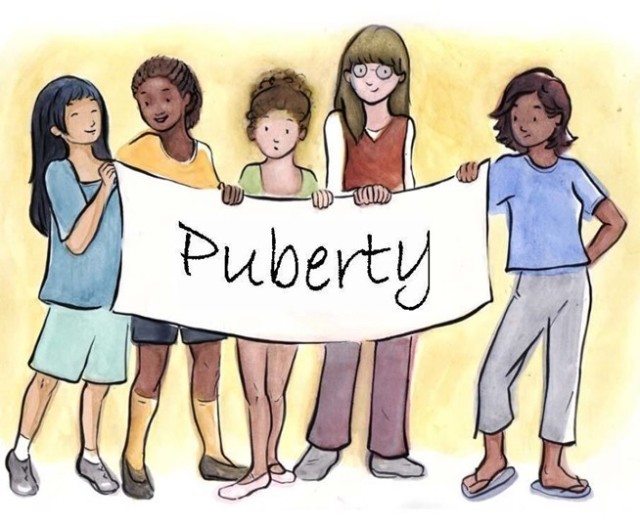When Katherine Isabelle said, “Going through puberty as a young girl [or…a young boy…for that matter] is so confusing. This monster invades your body, changes things and makes things grow, and no one tells you what’s going on.”, she was not just referring to the American adolescent but adolescents the world over…especially Indians!

This is because when it comes to teaching kids about puberty, the Indian school as well as the Indian parent conveniently passes the buck…well…surprising the buck is passed to the children themselves. In fact, schools sometimes even skip entire chapters that deals with the Human Reproductive system. Hence, it’s no wonder then that the Indian kid typically grapples with this confusion as he/she tries to understand the weird hormonal changes that occur in his/her body.
This is especially worrying because as studies indicate, the Indian kids — much like the kids in developed countries — are actually hitting puberty earlier than they did two decades ago. Before we examine and explain the reasons for the same, let us first define what ‘Puberty’ is. Puberty, defined by Oxford Dictionary, is “the period of a person’s life during which their sexual organs develop and they become capable of having children”.
Thus, puberty is a natural biological process that is initiated by hormonal signals…from the brain right up to the gonads (i.e. ovaries in girls and testes in boys). The hormones not only stimulate the child’s libido (hence the need for proper education), it actually brings about transformation in the child’s body – from the brain to bones to muscles to skin to hair and of course, to sexual organs. Puberty normally starts between ages 9 and 13 in girls and between 11 and 14 in boys.
Now that we know what puberty is, let us take note of the top three reasons for this alarming onset of early puberty in kids. The first reason linked to early puberty is the consumption of colas and other sugary drinks (and other fast-food that is low in nutritional-value). The second reason is the lack of exercise which leads to childhood obesity and precocious puberty (or early puberty). The third reason is completely environmental, which occurs in the form of exposure to chemicals like oestrogen (contained in pesticides, plastics, shampoo and even food items that we consume).
This early onset of puberty often leaves the child emotionally and psychologically confused, which is why it is imperative that you promptly sit your children down for the much needed talk about the ‘birds and the bees’. And just in case you’re unsure on how to go about doing that…simply follow the guidelines below:
- Engage With Your Kids : Even when your child’s school has a sex-ed program, you must nonetheless get involved. Hence, you must make it a point to ask them what they learnt in class so that you can deal with any unanswered questions they may still have (i.e. Questions they were too uncomfortable to ask in school).
- Use Visual Aids: They say, ‘A picture is worth a thousand words’. Hence, it makes good sense to use attractive and colourful pictures when discussing the biological changes that the child is going through. In fact, use as many fun pictures as you can.
- Make it fun : Most parents prefer to defer the “dreaded talk”. However a puberty talk with your children need not be embarrassing at all. In fact, you can make it as much fun as you can. This not only establishes a rapport between the parent and child but makes it (a) easier for you to talk to the child and (b) easier for the child to understand. Hence, choose funny poetry like ‘A Puppy Called Poetry’ by Adrian Mitchell or create jumbled word activities or even Connect-the-dot activities ( to name body parts/hormones) etc.
- Use Role-Play: Role-play is actually a very useful too whenever you want to talk to your children, especially when the talk deals with puberty. Hence, you can either make it situation-driven and assume different roles or you can even use your child’s Barbie dolls/Action figures to aid discussion through imaginative role-play. When children have fun, they also tend to lose their inhibitions.
- Never use disparaging language : Most parents seldom realise the true influence they exert on their children. Hence, whatever you do, do not use disparaging language when talking to your kids about Puberty. After all, when a child sees how embarrassed you get at the slightest mention of the human physical anatomy, they will emulate and mimic your responses. In fact, socialisation plays a huge role when it comes to helping the child develop a positive self-esteem.






























